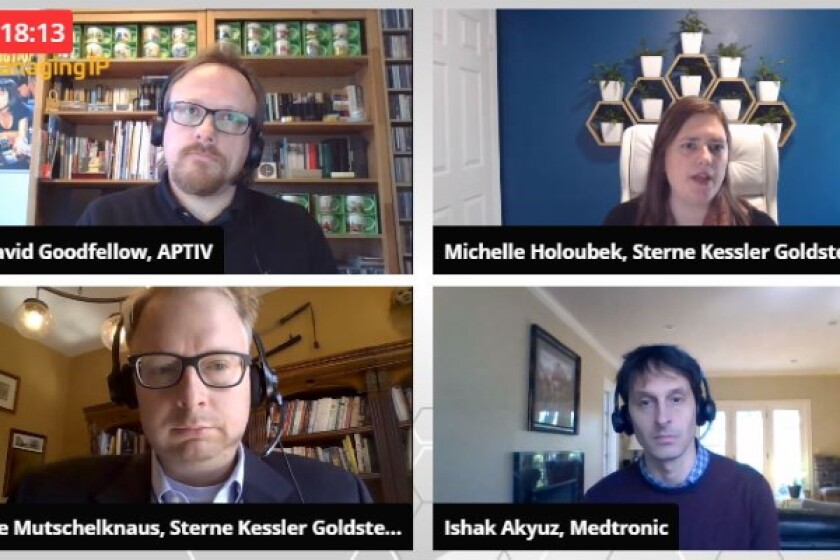Despite some governments taking huge steps to try to understand the complexities of artificial intelligence and intellectual property, there is still a lot of uncertainty surrounding what firms can patent, as emphasised by one panel at Managing IP’s US Patent Forum on Wednesday.
For starters, as speakers from Medtronic, Aptiv and Sterne Kessler pointed out, different organisations have different ideas of what AI actually is.
“For us, as a healthcare company, regular software receives specific instructions that tell it how to behave, classify data and make decisions,” said Ishak Akyuz, senior principal legal counsel at Medtronic in New York City.
“For AI, we start thinking of providing a framework for the computer to make decisions and draw conclusions without providing specific instructions. It becomes like a black box where we don’t actually know how the computer is coming up with decisions that classifies something as X or Y.”
David Goodfellow, EMEA chief patent counsel at technology company Aptiv in Dublin, added that his business and other AI-focused companies were well positioned to manage software patents, which they could now expect to properly scope to make eligible and meaningful in most jurisdictions.
But now, AI patenting has morphed from dealing with software into managing machine learning and big data, pushing that through neural networks and then trying to patent the results of that process.
“It’s now a matter of what you have learned from that machine learning and how it is applied by the machine, the results of that learning, and trying to claim that,” Goodfellow said.
He added that he had approached this shift in the same way as for general software patenting, where a technical result is required. A business should get a patent so long as the method of the AI engine or model is carried out by technical or real-world hardware, he said.
“It cannot not just be a case of pushing data around or manipulating it,” he noted.
What you can protect
“It’s pulling in data from different places and training the models, which might be sitting somewhere else along with the data. The actual number crunching might be somewhere else too.”
He added: “Actually determining the one infringer of the claim, then, is interesting. That question itself is not necessarily answered in a lot of jurisdictions, because we simply haven’t been testing these patents yet.”
On the question of where it might be best to patent or not, he saidthe answer always comes back to why a counsel is patenting an AI product.
“Are you patenting to have something that’s enforceable against someone who might be impacting on your market? If so, you want the patent in the market and you need to frame it so it is operable and can find infringers in that market.”
He added that startups or SMEs, which could just be looking for investment, might want to make sure they’ve got some patents behind the technology they’re looking to develop so they can push to get some investors or customers.
Akyuz at Medtronic added that he tends to take a different approach to jurisdictional patenting.
“For us, we’re talking about machine learning, and those models have been around for years. The best models are open source software, so anyone can use them.
“But when you’re looking to achieve 99% or 99.91% accuracy, or higher, that’s really where just using the base models is really not going to be sufficient.”
He added: “Then we need to think outside the box and look at the inputs and outputs of those models and look at where we can boost the accuracy – at which point you have to consider how you are going to prove that someone is infringing your patents.”
Akyuz said that, for Medtronic, it’s a matter of whether something in the project is easily observable and can form the basis of an infringement suit.











